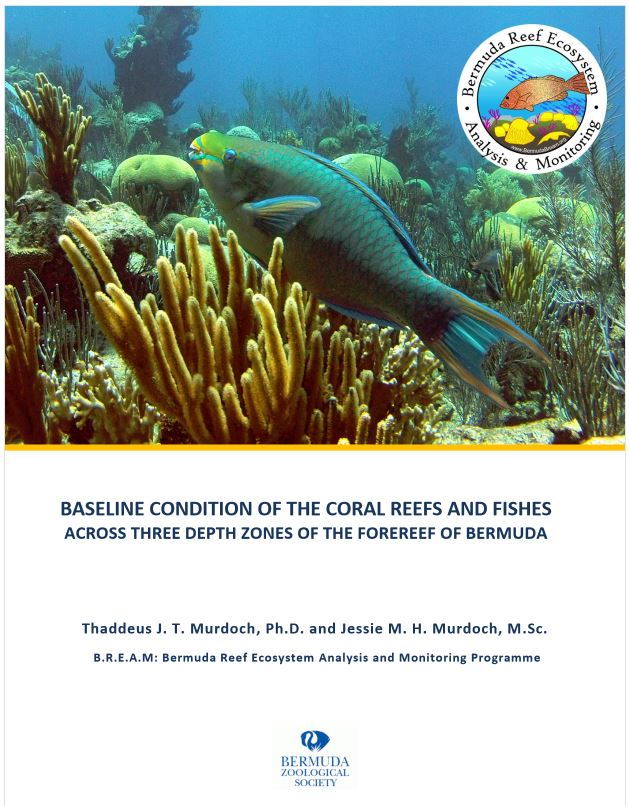By Jonathan Starling
Greenrock was invited to review the Baseline Report by Bermuda Reef Ecosystem Analysis & Monitoring Programme, which can be read in its entirety online here.
The report makes for some distressing reading for anyone concerned about the environment. We knew that fish catches were too high in the 1970s and had not recovered fully in the 1980s - what this report indicates is that the large predatory fishes, the apex predators of our waters, still haven't recovered and remain at critical population levels. Apex predators such as our groupers/rockfish are crucial for our nearshore ecosystems - they are the tigers or lions of our local environment.
The ocean is the cornerstone of Earth's life support system - it shapes climate and the weather - and our nearshore not only feeds us but protects us from storm events. The argument is simple - if we lose our large predatory fish, then we will lose our coral reefs, and that will have dire consequences for our future.
Environmentalists are fond of the saying 'think globally, act locally'. That is very relevant to what this report speaks to. Our reefs are already stressed - and likely to see more stress - due to rising sea temperatures, rising sea levels, ocean acidification and ocean deoxygenation - all consequences of global climate change. Added to this stress is the lionfish invasion and the critical population levels of our large predators.
We can act locally by actively caring for our nearshore and taking steps to reduce our own contributions to greenhouse gases.”


